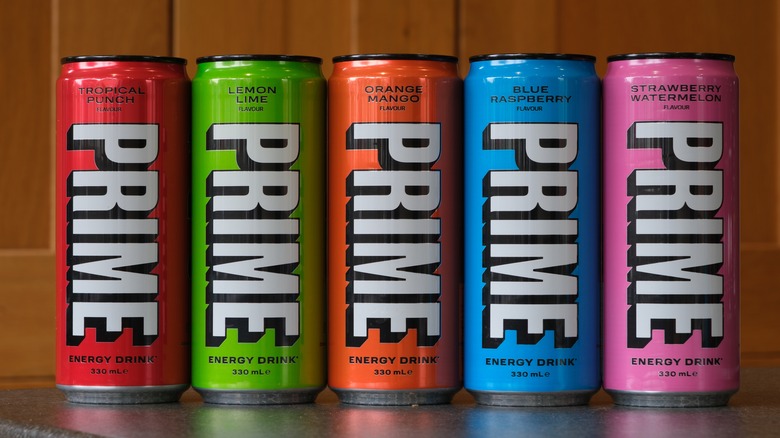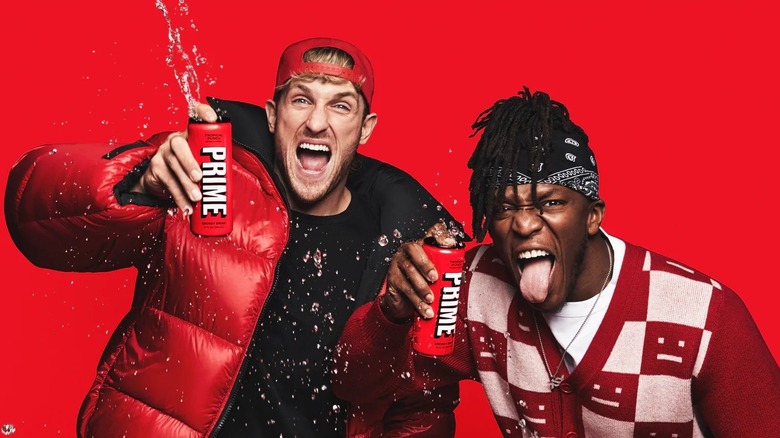Logan Paul's Prime Energy Draws Political Backlash For High Caffeine Content
If someone offered you a chance to drink six Coke cans' worth of caffeine in a single 12-ounce serving, would there be risks associated with saying yes? What if the person consuming it was a child? These are some of the pressing questions raised by YouTubers Logan Paul and KSI's Prime energy drink, which contains 200 milligrams of caffeine — more than double the amount found in a standard cup of coffee or a Red Bull.
The drink is facing political backlash over health concerns as a prominent lawmaker seeks to have the ingredients investigated. Senate Majority Leader Chuck Schumer described it as a "cauldron of caffeine" and drafted a letter to FDA Commissioner Dr. Robert Califf, writing "Many physicians have serious concern for Prime, and I write to specifically urge your agency to investigate Prime for its claims, marketing and caffeine content."
Although Prime's label warns that the energy drink is not recommended for anyone under the age of 18, Schumer alleges that the company's marketing and advertising initiatives don't explicitly deter younger demographics from consuming the caffeinated drink, and are actually targeted towards a younger audience. Prime Energy drink Prime has already been banned in several schools across the U.K. and Australia for its high caffeine content after doctors flagged the drink for potential health risks including anxiety and cardiovascular and digestive problems.
Caffeine's effect on children and teens
Healthy adults can safely consume up to 400 milligrams of caffeine per day, however, the American Academy of Child and Adolescent Psychiatry says children under the age of 12 should avoid caffeine, and all children and teenagers should avoid energy drinks specifically. According to experts at Columbia University, frequent caffeine consumption in children and teenagers is linked to brain development dysfunction and can exacerbate any pre-existing health conditions including high blood pressure, kidney disease, and anxiety.
Caffeine is considered an addictive drug and it is the only psychoactive drug legally available to children. Despite being classified as a drug, children's energy drink consumption rates are increasing and one report from the National Center for Complementary and Integrative Health found that close to one-third of children between the ages of 12 and 17 regularly consume energy drinks.
A spokesperson for Prime told CNBC that Prime Energy "contains a comparable amount of caffeine to other top-selling energy drinks, all falling within the legal limit of the countries it's sold in." The FDA has yet to respond to Schumer's request to launch an investigation.

